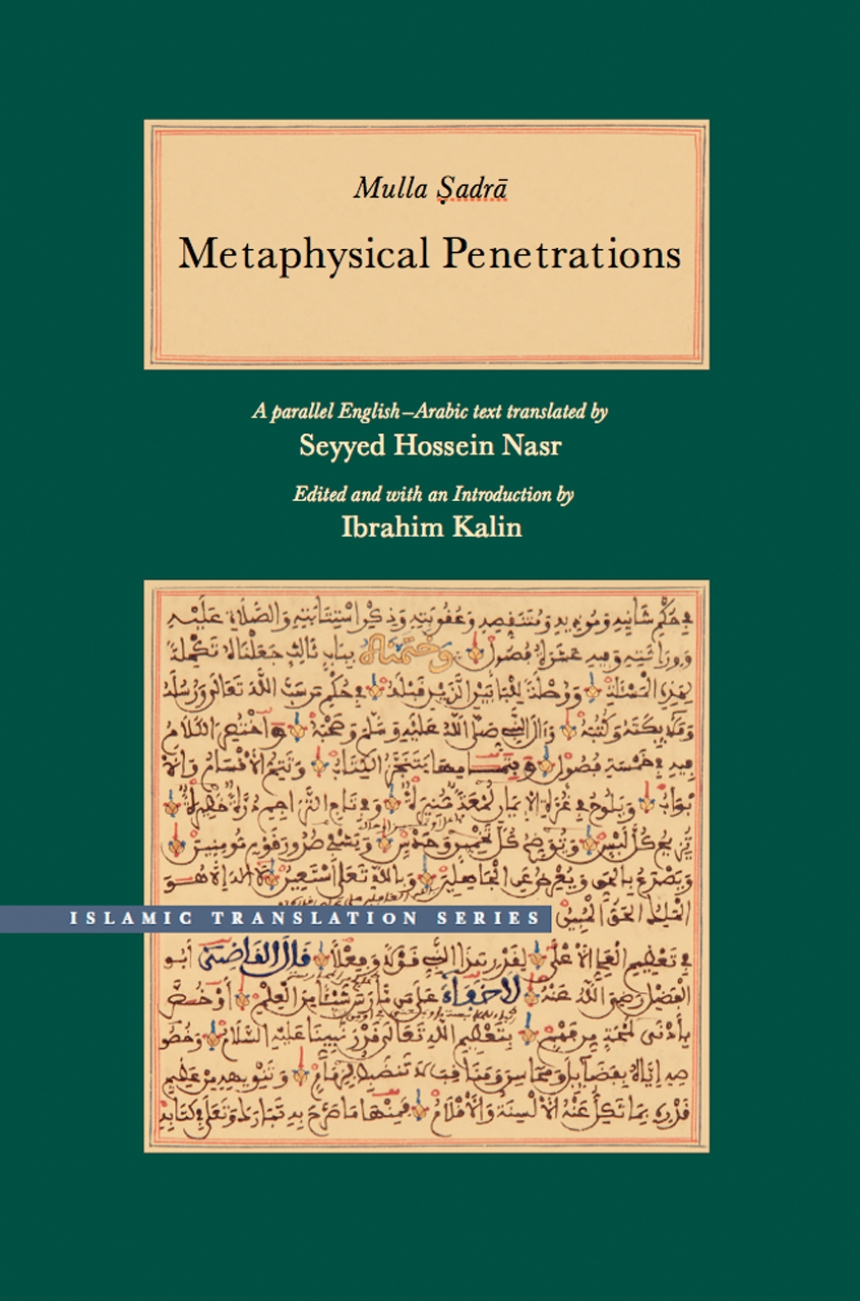Mulla Sadra (ca. 1572–1640) is one of the most prominent figures of post-Avicennan Islamic philosophy and among the most important philosophers of Safavid Persia. He was a prolific writer whose work advanced the fields of intellectual and religious science in Islamic philosophy, but arguably his most important contribution to Islamic philosophy is in the study of existence (wujud) and its application to such areas as cosmology, epistemology, psychology, and eschatology. Sadra represents a paradigm shift from the Aristotelian metaphysics of fixed substances, which had dominated Islamic philosophy, to an analysis of existence as the ultimate ground and dynamic source of things. He posits that all beings derive their reality and truth from their wujud and that a proper philosophical analysis must therefore start and eventually end with it. The present work’s focus on Sadra’s gradational ontology provides a strong foundation for the reader to understand Sadra’s other works and later texts by other philosophers working in the same field. This edition contains parallel English-Arabic texts and a new translation by preeminent scholar of Islamic philosophy Seyyed Hossein Nasr.
320 pages | 6 x 9 | © 2014
Brigham Young University - Islamic Translation Series
Philosophy: Philosophy of Religion
Table of Contents
Foreword to the Series
Notes on Conventions
Translator’s Preface
Editor’s Introduction
Preface
The Opening
Concerning research into the concept of wujud, its conditions, the proof of its reality, and its states
The First Penetration
Concerning the explanation that it is free of the need to be defined
The Second Penetration
Concerning the manner in which wujud comprises things
The Third Penetration
Concerning the verification of wujud objectively
The Fourth Penetration
In responding to doubts that have been brought against the objectivity of wujud
The Fifth Penetration
Concerning the manner in which quiddity is qualified by wujud
The Sixth Penetration
Concerning the particularization of individual existences and their ipseity—in a summary fashion
The Seventh Penetration
Concerning the subject that what is by essence the object of instauration and what emanates from the cause is wujud without quiddity
The Eighth Penetration
Concerning the modality of instauration and effusion, and the proof of the First Creator, and the reality that the Effusing Instaurer is one, there being no multiplicity in it and no partner unto it
The Seal of the Treatise
Notes
Bibliography
Index
Index of Qur’anic Citations
Notes on Conventions
Translator’s Preface
Editor’s Introduction
Preface
The Opening
Concerning research into the concept of wujud, its conditions, the proof of its reality, and its states
The First Penetration
Concerning the explanation that it is free of the need to be defined
The Second Penetration
Concerning the manner in which wujud comprises things
The Third Penetration
Concerning the verification of wujud objectively
The Fourth Penetration
In responding to doubts that have been brought against the objectivity of wujud
The Fifth Penetration
Concerning the manner in which quiddity is qualified by wujud
The Sixth Penetration
Concerning the particularization of individual existences and their ipseity—in a summary fashion
The Seventh Penetration
Concerning the subject that what is by essence the object of instauration and what emanates from the cause is wujud without quiddity
The Eighth Penetration
Concerning the modality of instauration and effusion, and the proof of the First Creator, and the reality that the Effusing Instaurer is one, there being no multiplicity in it and no partner unto it
The Seal of the Treatise
Notes
Bibliography
Index
Index of Qur’anic Citations

